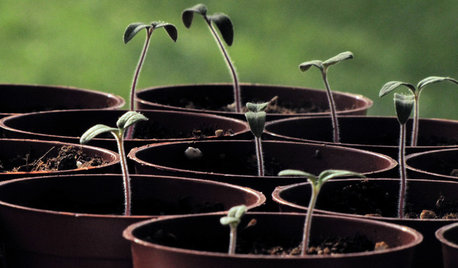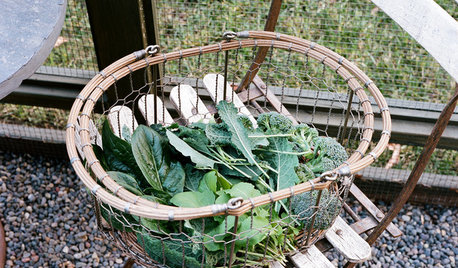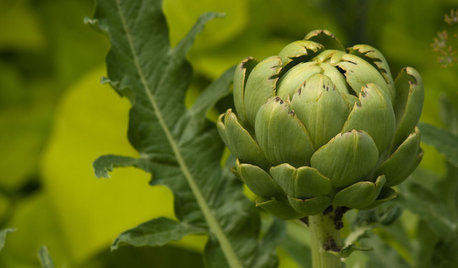Is it a waste of time to throw eggshells in the garden thru the winter
Lea Grabb
5 years ago
Featured Answer
Sort by:Oldest
Comments (39)
LoneJack Zn 6a, KC
5 years agoEmbothrium
5 years agoRelated Professionals
Surprise Landscape Contractors · Camp Verde Landscape Contractors · Cicero Landscape Contractors · Hilo Landscape Contractors · Lehigh Acres Landscape Contractors · South Lyon Landscape Contractors · Charlotte Driveway Installation & Maintenance · Fairfax Driveway Installation & Maintenance · Buford Landscape Contractors · Avocado Heights Landscape Contractors · Battle Ground Landscape Contractors · Brookline Landscape Contractors · Longmont Landscape Contractors · Palos Hills Landscape Contractors · North Hollywood Roofing & Guttersdigdirt2
5 years agolast modified: 5 years agoUser
5 years agolast modified: 5 years agodaninthedirt (USDA 9a, HZ9, CentTX, Sunset z30, Cfa)
5 years agolast modified: 5 years agodaninthedirt (USDA 9a, HZ9, CentTX, Sunset z30, Cfa)
5 years agolast modified: 5 years agofloral_uk z.8/9 SW UK
5 years agoLea Grabb
5 years agofloral_uk z.8/9 SW UK
5 years agowindberry zone5a BCCanada
5 years agonancyjane_gardener
5 years agodaninthedirt (USDA 9a, HZ9, CentTX, Sunset z30, Cfa)
5 years agolast modified: 5 years agowindberry zone5a BCCanada
5 years agolast modified: 5 years agodaninthedirt (USDA 9a, HZ9, CentTX, Sunset z30, Cfa)
5 years agolast modified: 5 years agoMokinu
5 years agolast modified: 5 years agodaninthedirt (USDA 9a, HZ9, CentTX, Sunset z30, Cfa)
5 years agolast modified: 5 years agogardengal48 (PNW Z8/9)
5 years agosqwib
5 years agotheforgottenone1013 (SE MI zone 5b/6a)
5 years agogardengal48 (PNW Z8/9)
5 years agodaninthedirt (USDA 9a, HZ9, CentTX, Sunset z30, Cfa)
5 years agolast modified: 5 years agowindberry zone5a BCCanada
5 years agodaninthedirt (USDA 9a, HZ9, CentTX, Sunset z30, Cfa)
5 years agolast modified: 5 years agogardengal48 (PNW Z8/9)
5 years agotheforgottenone1013 (SE MI zone 5b/6a)
5 years agokrissy377
5 years agodaninthedirt (USDA 9a, HZ9, CentTX, Sunset z30, Cfa)
5 years agolast modified: 5 years agosqwib
5 years agogardengal48 (PNW Z8/9)
5 years agosqwib
5 years agogardengal48 (PNW Z8/9)
5 years agodaninthedirt (USDA 9a, HZ9, CentTX, Sunset z30, Cfa)
5 years agolast modified: 5 years agosqwib
5 years agogardengal48 (PNW Z8/9)
5 years agolast modified: 5 years agosqwib
5 years agodaninthedirt (USDA 9a, HZ9, CentTX, Sunset z30, Cfa)
5 years agolast modified: 5 years ago
Related Stories

EDIBLE GARDENSPlanting Time: Get Your Garden Started With Seeds
You can get an early gardening fix — and save money too — by starting seedlings in the warm indoors
Full Story
GARDENING GUIDESGarden Myths to Debunk as You Dig This Fall and Rest Over Winter
Termites hate wood mulch, don’t amend soil for trees, avoid gravel in planters — and more nuggets of garden wisdom
Full Story
FALL GARDENING3 Chores to Do Now to Prep Your Garden for Winter and Spring
These basic moves will revive your soil, renew your tools and make for a fruitful harvest next year
Full Story
GARDENING GUIDESYour Garden Is Stirring — Here’s What to Do in February
February is a good time to start seeds, shape up shrubs and watch for the earliest blooms. Here’s what to do in your part of the U.S. now
Full Story
FALL GARDENINGWhy Fall Is the Best Time for Planting
Spring is overrated for planting. Starting plants in autumn has advantages for both garden and gardener
Full Story
KITCHEN DESIGNHow to Waste Less Food
Here are 9 relatively painless ways to throw away less food and stretch your grocery dollars
Full Story
EARTH DAYGrow a Beautiful Garden With Ecofriendly Greywater
Reducing home water waste means lower bills and a healthier planet. Here's how to set up a greywater home irrigation system that can help
Full Story
LANDSCAPE DESIGNIs It Time to Consider Fake Grass?
With more realistic-looking options than ever, synthetic turf can be a boon. Find the benefits and an installation how-to here
Full Story
PORCHESGive Your Outdoor Rooms a Cozy Winter Makeover
If you live in a mild climate, enjoy days and evenings on your porch or patio with these tips for staying warm and comfortable
Full Story
MOST POPULARUnwind With 30 Gorgeous Garden Retreats
Houzz users share their favorite spots for relaxing, meditating and spending time with family and friends
Full Story







sqwib